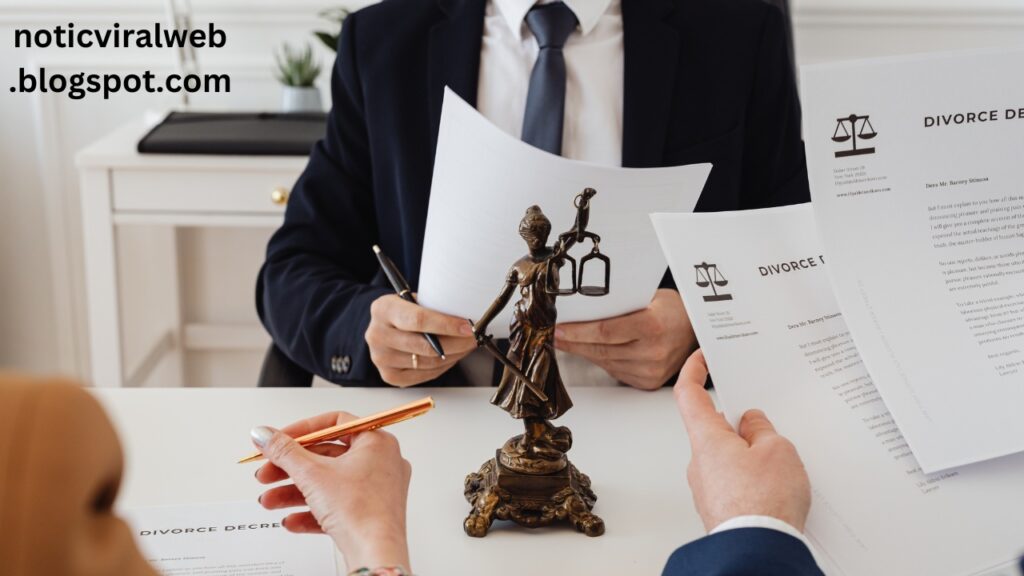Introduction
Navigating legal matters can be daunting, whether you’re dealing with personal issues, business disputes, or criminal charges. This detailed guide offers valuable insights and advice from seasoned lawyers to help you understand and manage your legal challenges effectively. From choosing https://noticviralweb.blogspot.com/2024/04/consejos-de-un-abogado.html .
The Importance of Legal Advice
Legal advice is crucial in ensuring that your rights are protected and that you make informed decisions. Lawyers provide expertise that helps you navigate complex legal systems, understand your options, and achieve favorable outcomes.
Why You Need a Lawyer
Engaging a lawyer can make a significant difference in the outcome of your case. Lawyers possess specialized knowledge and skills that are essential for interpreting laws, drafting legal documents, and representing you in court. Their expertise can help you https://noticviralweb.blogspot.com/2024/04/consejos-de-un-abogado.html .
When to Seek Legal Advice
It’s important to seek legal advice early, especially in situations such as:
- Criminal Charges: To protect your rights and mount a strong defense.
- Civil Disputes: To resolve conflicts involving contracts, property, or personal injuries.
- Business Matters: To navigate complex transactions, mergers, and compliance issues.
- Family Issues: To handle matters like divorce, custody, and estate planning.
Choosing the Right Lawyer
Selecting the right lawyer is critical to the success of your legal matter. This section provides tips on finding and choosing the best lawyer for your needs. https://noticviralweb.blogspot.com/2024/04/consejos-de-un-abogado.html .
Identifying Your Legal Needs
Before you start searching for a lawyer, clearly identify your legal needs. Determine the area of law your issue falls under, whether it’s criminal, civil, family, or business law. This will help you find a lawyer with the right expertise.
Researching Potential Lawyers
Conduct thorough research to identify potential lawyers. Consider the following steps:
- Referrals: Ask friends, family, or colleagues for recommendations.
- Online Reviews: Check online reviews and ratings to gauge a lawyer’s reputation.
- Professional Associations: Look for lawyers who are members of reputable legal associations.
Evaluating Lawyer Qualifications
Evaluate the qualifications of potential lawyers to ensure they meet your needs:
- Experience: Look for lawyers with experience handling cases similar to yours.
- Specialization: Ensure the lawyer specializes in the relevant area of law.
- Track Record: Review their success rate and case outcomes.
Conducting Interviews
Interviewing potential lawyers is crucial to assess their suitability. Prepare questions such as:
- Experience with Similar Cases: Ask about their experience handling cases like yours.
- Approach to Your Case: Understand their strategy and approach.
- Fees and Costs: Clarify their fee structure and any additional costs.
Also Read : https://guia-automovil.com/2020/10/07/los-3-mejores-autos-clasicos-de-ford: Comprehensive Guide
Understanding Legal Processes
Familiarizing yourself with legal processes can help you navigate your case more effectively. This section outlines the key stages of common legal processes.
Civil Litigation Process
Civil litigation involves resolving disputes between individuals or entities. Key stages include:
- Pleadings: Filing a complaint and response.
- Discovery: Exchanging evidence and information.
- Trial: Presenting the case in court.
- Judgment: The court’s decision and potential appeals.
Criminal Justice Process
The criminal justice process involves the following stages:
- Arrest: The suspect is taken into custody.
- Charges: Formal charges are filed.
- Arraignment: The suspect is informed of the charges and enters a plea.
- Trial: The case is presented before a judge or jury.
- Sentencing: The convicted individual receives their sentence.
Family Law Proceedings
Family law cases often involve sensitive issues such as divorce and child custody. Key stages include:
- Filing Petition: Initiating the legal process.
- Mediation: Attempting to reach an agreement outside of court.
- Trial: If mediation fails, presenting the case in court.
- Final Judgment: The court’s final decision on the matter.
Legal Document Preparation
Proper preparation of legal documents is essential for the success of your case. This section provides tips on drafting and managing legal documents effectively.
Key Legal Documents
Important legal documents include:
- Contracts: Agreements between parties outlining terms and conditions.
- Wills: Documents specifying how a person’s estate should be managed after death.
- Power of Attorney: Authorizations for someone to act on your behalf.
Drafting Legal Documents
When drafting legal documents, consider the following tips:
- Clarity: Ensure the document is clear and unambiguous.
- Legal Language: Use precise legal terminology.
- Review: Have the document reviewed by a lawyer to ensure accuracy.
Managing Legal Documents
Effective management of legal documents involves:
- Organization: Keep documents organized and easily accessible.
- Backup: Maintain digital backups of important documents.
- Security: Ensure documents are stored securely to protect sensitive information.
Common Legal Challenges
Understanding common legal challenges can help you prepare for and address potential issues. This section explores frequent legal problems and how to handle them.
Contract Disputes
Contract disputes arise when parties disagree on the terms or execution of a contract. Tips for handling contract disputes include:
- Review the Contract: Carefully review the contract terms.
- Negotiate: Attempt to negotiate a resolution with the other party.
- Legal Action: If negotiation fails, consider legal action to enforce the contract.
Personal Injury Claims
Personal injury claims involve seeking compensation for injuries caused by another party’s negligence. Steps to handle personal injury claims include:
- Medical Documentation: Obtain medical records and documentation of your injuries.
- Evidence Collection: Gather evidence such as photos, witness statements, and police reports.
- Legal Representation: Hire a lawyer specializing in personal injury cases.
Divorce and Custody Issues
Divorce and custody issues are often emotionally charged and complex.
https://noticviralweb.blogspot.com/2024/04/consejos-de-un-abogado.html . Tips for managing these issues include:
- Mediation: Consider mediation to reach an amicable agreement.
- Legal Guidance: Seek legal advice to understand your rights and options.
- Child’s Best Interests: Prioritize the best interests of any children involved.
Protecting Your Legal Rights
Protecting your legal rights is essential in any legal matter. This section provides strategies for safeguarding your rights effectively.
Understanding Your Rights
Educate yourself on your legal rights to ensure you are protected. This includes understanding your rights in different contexts, such as:
- Employment: Know your rights as an employee, including protection against discrimination and wrongful termination.
- Consumer: Understand your rights as a consumer, including protections against fraud and defective products.
- Criminal: Be aware of your rights if you are arrested or charged with a crime.
Seeking Legal Help
Don’t hesitate to seek legal help if you believe your rights are being violated. Contact a lawyer who specializes in the relevant area of law for advice and representation.
Documenting Incidents
Documenting incidents is crucial for protecting your rights. Keep detailed records of any interactions, communications, and evidence related to the incident. This documentation can be invaluable in legal proceedings.
Conclusion
Navigating legal matters can be complex and challenging, but with the right legal advice and representation, you can protect your rights and achieve favorable outcomes. This comprehensive guide has provided valuable insights into choosing the right lawyer, understanding legal processes, and handling common legal challenges. By following these tips and strategies, you can effectively manage your legal issues and secure the best possible results.
Also Read : https://guia-automovil.com/2023/02/06/las-mejores-pick-ups-para-este-2023: Brief Overview
FAQs about Legal Advice
What should I consider when choosing a lawyer?
When choosing a lawyer, consider their experience, specialization, track record, and fees. It’s also important to feel comfortable with their communication style and approach to your case.
How can I prepare for a legal consultation?
To prepare for a legal consultation, gather all relevant documents, make a list of questions, and be ready to discuss the details of your case. This will help the lawyer understand your situation and provide accurate advice.
What is the difference between civil and criminal cases?
Civil cases involve disputes between individuals or entities, typically seeking monetary compensation or specific performance. Criminal cases involve actions that are considered offenses against the state, with potential penalties including fines and imprisonment.
How can I protect my legal rights during a dispute?
To protect your legal rights during a dispute, understand your rights, document all interactions and evidence, and seek legal advice. Avoid making any admissions or agreements without consulting your lawyer.
What are the steps in the criminal justice process?
The criminal justice process includes arrest, charges, arraignment, trial, and sentencing. Each stage involves specific procedures and protections for the accused.
How do I handle a contract dispute?
To handle a contract dispute, review the contract terms, attempt to negotiate a resolution, and consider legal action if necessary. Consulting a lawyer can help you understand your options and strengthen your case.



